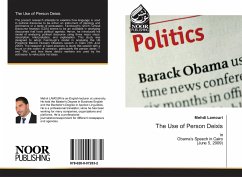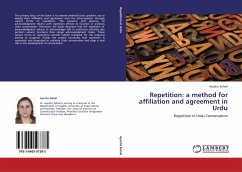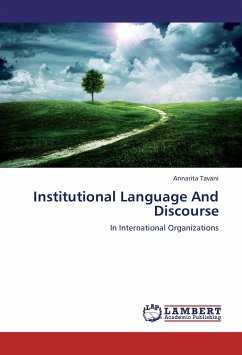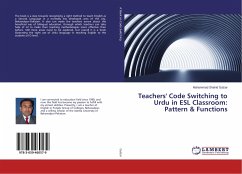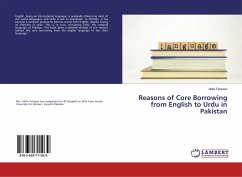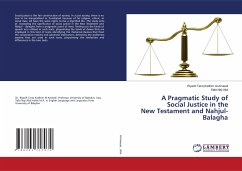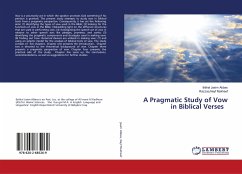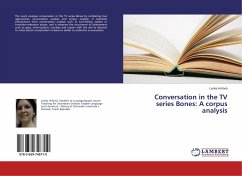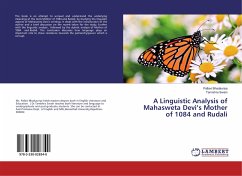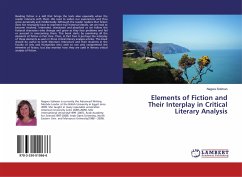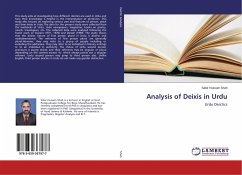
Analysis of Deixis in Urdu
Urdu Deictics
Versandkostenfrei!
Versandfertig in 6-10 Tagen
41,99 €
inkl. MwSt.

PAYBACK Punkte
21 °P sammeln!
This study aims at investigating how different deictics are used in Urdu and how their knowledge is helpful in the interpretation of sentences. This study also focuses on exploring various uses and features of person, place and time deixis in Urdu.The data for the present study were collected from the textbooks of Urdu, Urdu newspapers, magazines, books on poetry, novels, travelogues, etc. The collected data were analyzed following the frame work of Ingram (1971, 1978) and Diessel (1999). The study shows that the deictic nature of first person plural in Urdu is diverse and multidimensional. Th...
This study aims at investigating how different deictics are used in Urdu and how their knowledge is helpful in the interpretation of sentences. This study also focuses on exploring various uses and features of person, place and time deixis in Urdu.The data for the present study were collected from the textbooks of Urdu, Urdu newspapers, magazines, books on poetry, novels, travelogues, etc. The collected data were analyzed following the frame work of Ingram (1971, 1978) and Diessel (1999). The study shows that the deictic nature of first person plural in Urdu is diverse and multidimensional. The referents of first person plural are generally plural.However, they may refer to a group of people including or excluding the addressee. They may refer to an individual in literary writings or to an individual in authority. The choice of Urdu second person pronouns is purely deictic and their referents may be singular or plural depending on the context except 'tu' which always points out asingular referent. Urdu second person may jump to third person also. Unlike English, third person deictics in Urdu do not make any gender distinction.



